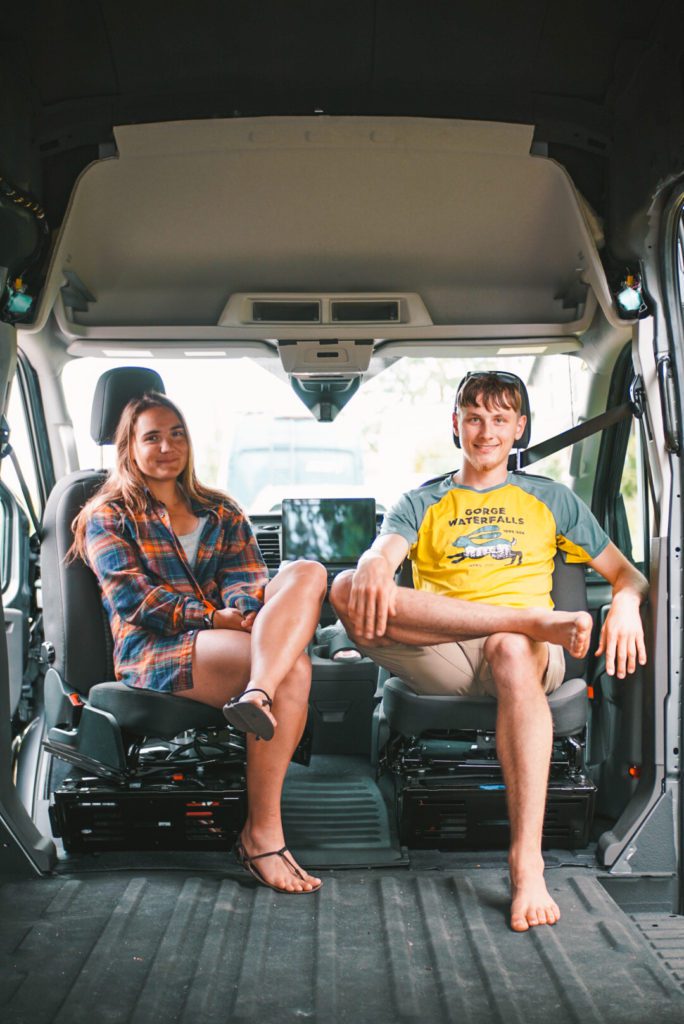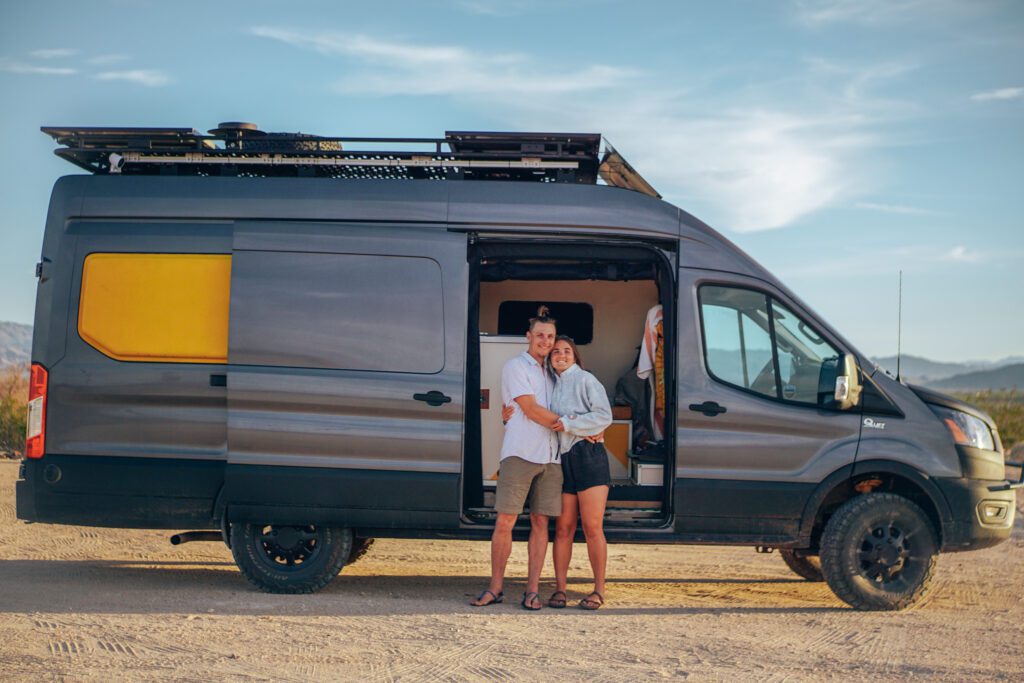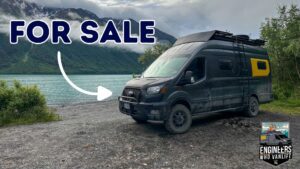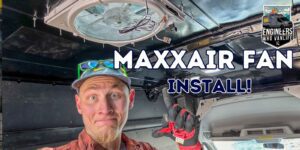Solar Power for Van Life: Building A Sustainable Energy Source
This guide is dedicated to all thing solar power and van life! We will discuss:
If you are looking for more information on a camper van electrical system in general, and not just solar power, head to our Complete Guide to Camper Van Electrical Systems.
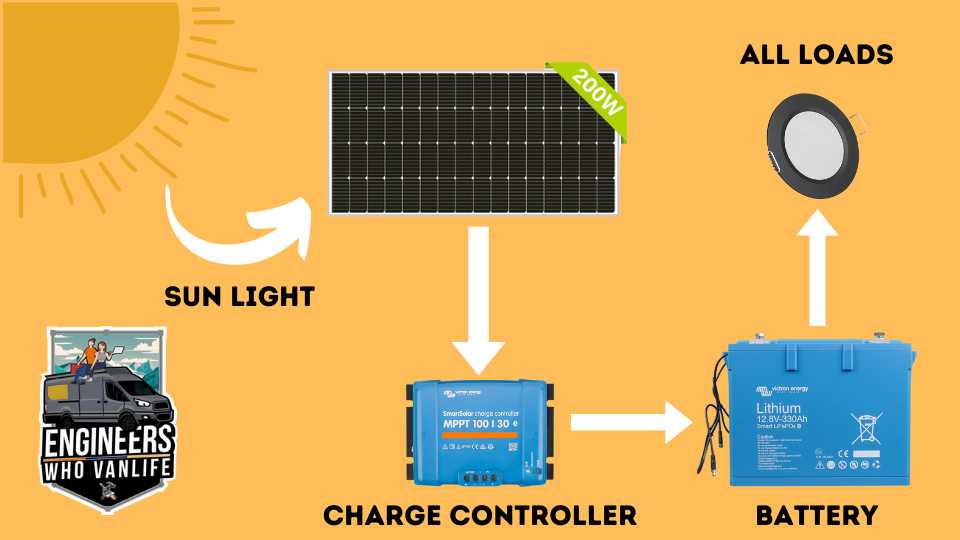
** Disclaimer: This blog post contains various affiliate links that provide a small kickback to us, at no additional cost to you. We truly appreciate your support if you choose to purchase through these! **
How Does Solar Power Work In A Van?
Solar panels in a camper van capture energy from the sun at a specific voltage determined by your particular solar panels. That energy is then passed through a Maximum Power Point Tracking (MPPT) solar charge controller where the voltage is reduced for the desired battery chemistry, and the current is increased to maximize charging efficiency.
The resulting power is then stored in your batteries so that you can use power even when it is not sunny out. The stored energy can be directly used by your DC appliances, or pass through your inverter to supply AC power to high power devices.
What Size Solar Panels Do I Need For Van Life?
Most solar panels range from 25 Watts to 400 Watts, but van lifers typically choose panels between 100 and 300 Watts because of width restraints on their roof.
Selecting your exact panels requires a balance of two factors:
- Space Efficiency: Higher wattage panels are more space efficient due to less total framing and fewer number of gaps between panels from the necessary solar panel mounting brackets. A fewer number of larger panels are also preferred over many smaller panels to save effort in the mounting process as well as simplifying the wiring.
- Size Restrictions: Gross dimensions of your roof rack and positions of any other roof mounted components such as MaxxAir Fans, skylights, rooftop AC units, and antennas, will dictate the size of panels that will fit within your available roof space.
Ideally you will end up choosing only one size of solar panel for your solar array. Mixing multiple sizes of solar panels will result in both lost voltage and lost current, which will in turn decrease the total efficiency of your array and the amount of power you are able to harvest from the sun. If you must mix two different sized solar panels, be sure to wire each type to a different MPPT solar charge controller.
Calculating Van Life Energy Needs:
Calculating your van life energy needs is done through a full power audit. This requires listing all of the appliances you will have in your camper van, their power consumption, and for how long each day you will use each appliance. The sum total of all the individual appliances will net your total daily power usage. Generally, figure anywhere from 500 W for a very simple van to over 5,000 W for a fully loaded van.
Van Life Power Audit Calculator
Use our built in power audit tool to figure out your vanlife power needs!
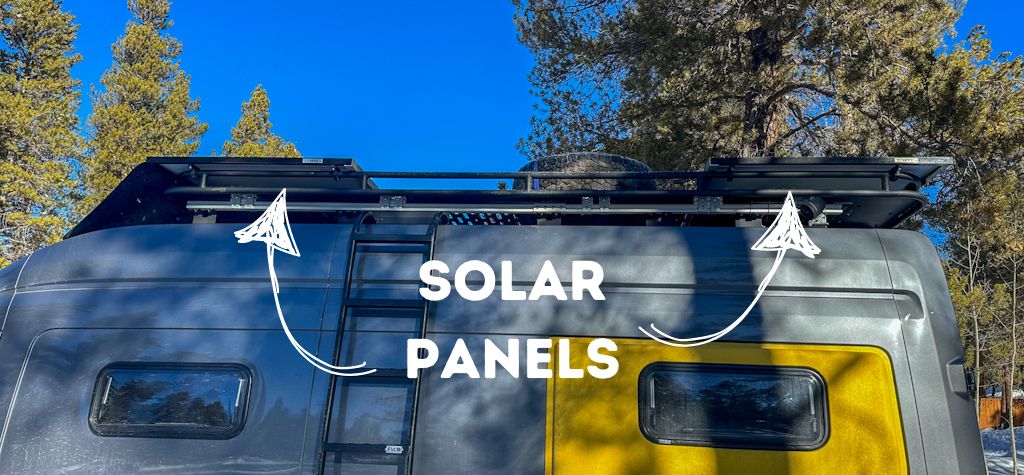
Our Top Solar Panel Recommendations
When it comes to selecting your solar panels, there are many great solar panel options and we are not brand loyal in any one direction. That being said, here a few common sizes of panels that do a good job balancing price, size, and efficiency.
- 100 W rigid panel (From Battle Born Batteries)
- 150 W rigid Panel (On Amazon, other sizes available)
- 2×400 W rigid panel (From EcoFlow Gear Co)
Series vs. Parallel Wiring of Solar Panels
When you have more than one solar panel, you will need to make the decision on how to wire your panels: in series, or parallel. We will ignore series+parallel configurations for now. We compare the options below:
Panels in Series
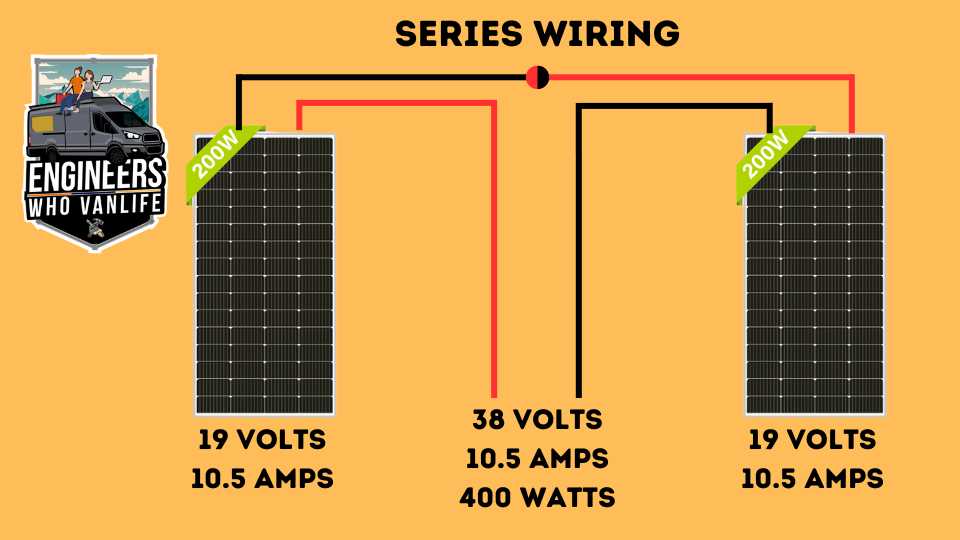
- Amperage stays constant, and voltages sum
- Fewer amps through wires mean smaller wires can be used
- Shade on one panel will knock out the entire solar array
- Fewer connectors and easier to wire
Panels in Parallel
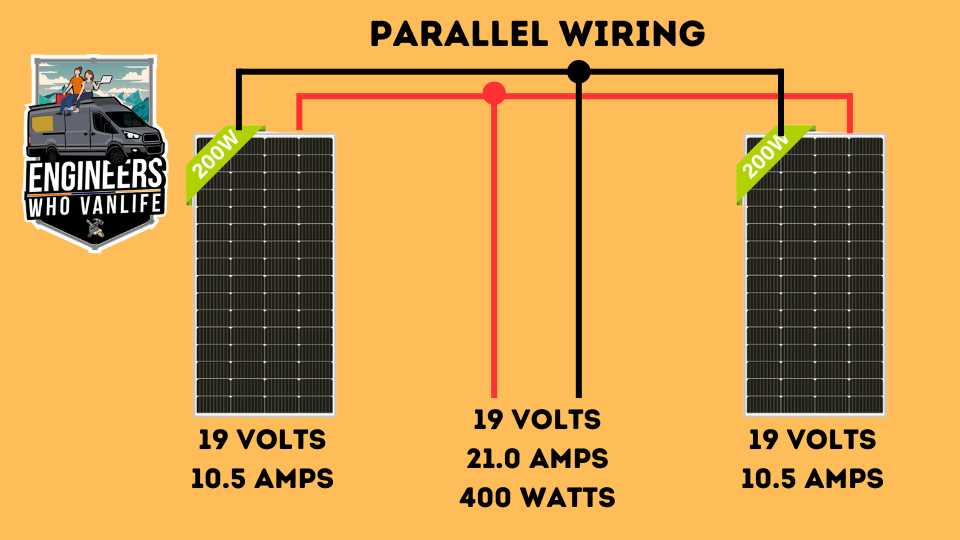
- Voltage stays constant, and amperages sum
- High amperage through wires needs thicker solar wires
- Shade resistant. If one panel is shaded, the rest of the array will work
- More complex to wire
How Much Does it Cost to Install a Solar Power System in a Camper Van?
The cost of installing a camper van solar system will vary based on the size of the array, the quality of the solar panels, and whether or not you can tackle this project yourself as a DIY install.
Here is a breakdown of the majors costs:
- Panels: Solar panels range in cost from ~$0.50/Watt to upwards of $1.50/Watt depending on quality of panel selected. The highest quality panels typically have efficiencies in the 20-21% range, and the cheaper panels will fall in the 17-19% range. Remember, when comparing a 17% efficient panel to a 21% efficient panel, the difference is not 4% more energy output, but 24% more energy output for the same surface area on your van’s roof!
- Charge Controllers: A reliable MPPT will cost you $100-$200, with the cost being highly dependent upon the size of MPPT solar controller selected. The two most common MPPT sizes for van lifers are a 30 Amp MPPT, and 50 Amp MPPT.
- Wiring and Connectors: These can cost another $25 to $100 depending on the length and size of wire you need, as well as the mc4 connectors needed to achieve your wiring configuration.
- Mounting Hardware: The best solar panel mounting hardware will cost you ~$30 per panel, but cheaper options are available with a little bit of ingenuity (angled aluminum!).
In all, expect to spend as little as $250 for a basic 200W system, or as much as $1,300 for a high quality 600W system.
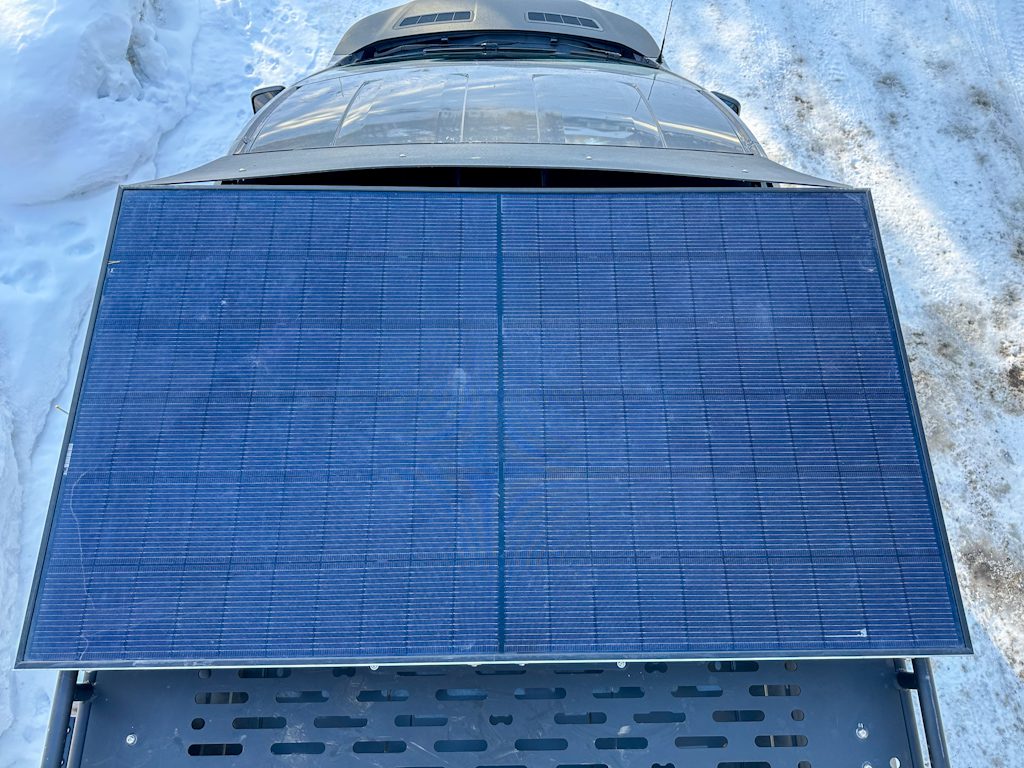
What are the Advantages of Using Solar Power in a Van Conversion?
Generating power from the sun has a plethora of benefits, especially for van lifers:
- Clean and renewable energy. Who doesn’t like being a little more eco conscious?
- Ability to go off-grid. With the power of the sun you can boon-dock wherever you want without worrying about plugging into shore power.
- Quiet operation. Unlike generators, solar panels operate completely silently. A lot of folks opt for van life to enjoy the peace and tranquility of nature, and nothing ruins a morning like having to fire up a generator to make coffee.
- Low maintenance. The only thing you will have to do to keep your solar panels operating is rinse the dust off in the summer (we do this every 1-2 months), and brush the snow off in the winter. If you can manage this, then your solar panels will operate at their max efficiency all year round!

Can You Run Air Conditioning With a Solar Power System in your Van?
Is a purely solar powered system capable of running an air conditioner in a camper van? We get this questions in almost every consulting call. The long answer is “it depends”, but the short answer is generally no. A complete power audit is always necessary to figure out your power needs and capabilities, but air conditioning is typically a very high power device (800 – 1,800 Watts). Running it for even an hour or two can exhaust all the power a small solar system can generate in a day.
The more thorough answer to this question is to set realistic expectations for how long you will be able to run your AC every day, which will generally range from none up to 2-3 hours per day depending on your season, location, weather, and your other electrical demand.
If you want to run your AC longer, you will need alternative power generating capabilities such as DC-DC charging or shore power.
What is the Lifespan of Solar Panels on Camper Vans?
Baring disaster while traveling on the road, solar panels will last anywhere form 15 to 30 years. Needless to say, you wont have to be replacing you van solar panels any time soon!
Over time, the power output of a solar panel will decline by ~0.5% per year, so by the end of a 25 year useful lifespan, they will be outputting ~12% less power than they did originally. Each panel will vary slightly, with more expensive panels degrading slower and having a longer rated lifetime.
Are Portable Solar Panels a Good Option for Van Lifers?
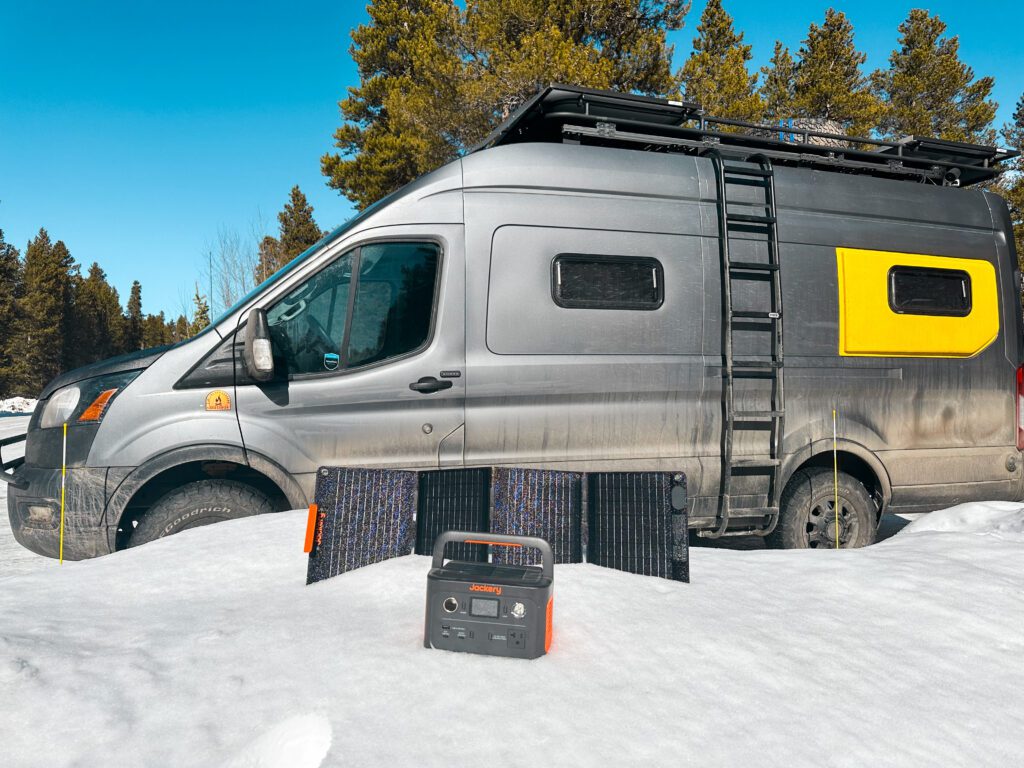
Portable solar panels are a fantastic option for some van lifers, but this is entirely dependent upon both the travel style and the rig. Some reasons van lifers might not need, or want, a permanent solar system include:
- Minimal power needs
- Only DC power requirements
- Prioritizing stealth
- Permanent install is not possible due to roof or other restraints
Most van lifers who use portable solar panels pair them with a portable, all-in-one power bank. Our go-to power banks are either Jackery or a Bluetti. They are available in sizes ranging from 600Wh all the way to 2,400Wh, and these power banks have their own portable solar panels ranging from 120W up to 420W.
Are flexible solar panels good for van lifers?
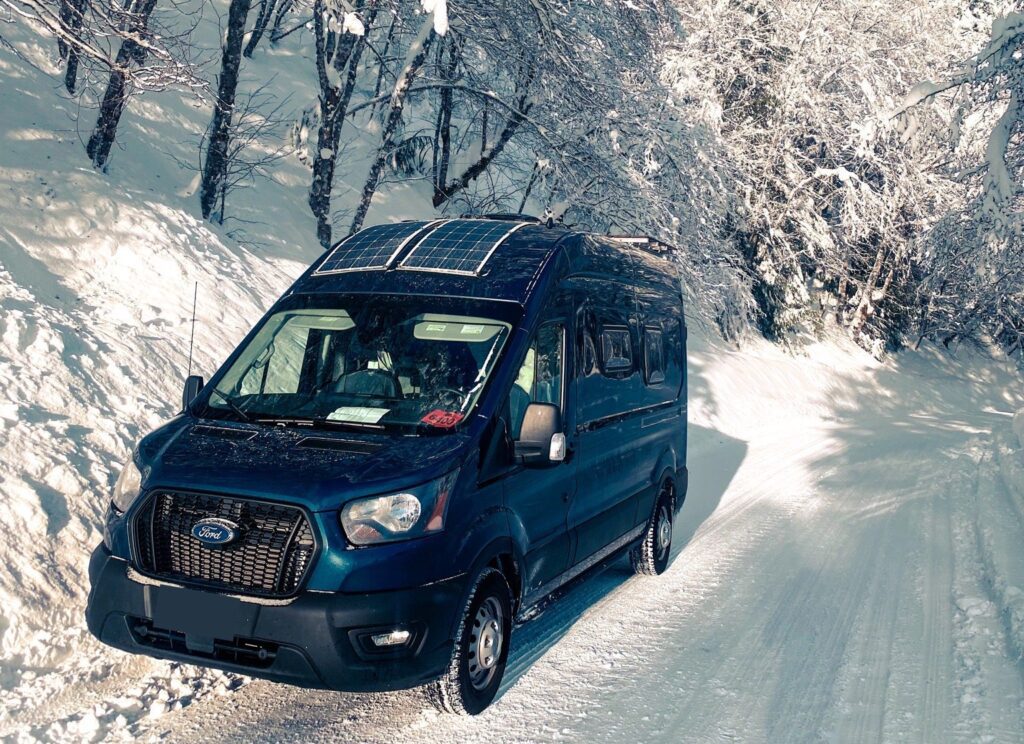
Flexible solar panels are a lightweight alternative to rigid solar panels. They install best on fiberglass roofs with double sided VHB tape on the underside and/or eternabond around the perimeter. Although you can install then on metal van roofs, we don’t recommend doing so unless absolutely necessary.
First, the roof corrugations make getting a good seal with the eternabond difficult, and we suspect water gets underneath the panels and doesn’t drain. Next, metal roofs heat up fast in the sun, and there is no convection cooling the undersize of the these solar panels. Not only will the solar panels operate less efficiently due to higher operating temperatures, but hot spots may crop up and prematurely damage your panels.
Flexible solar panels typically have rated lifespans of 15 years, whereas rigid panels are rated anywhere from 20 to 30 years.
How do I Maintain and Clean my Van's Solar Panels?
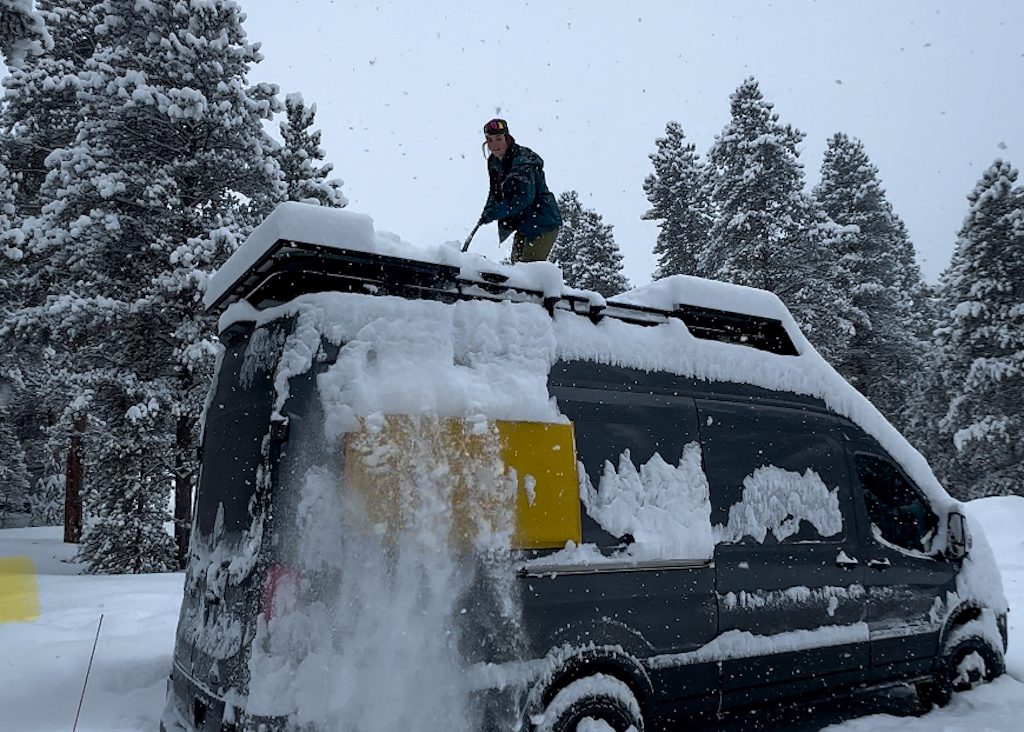
Solar panels are virtually maintenance free! Keeping them clean is the main requirement. Keep your solar panels operating at 100% efficiency by cleaning off dust build up in the summer with a wet towel. We typically do this every 1-2 months. In the winter months, the same principle applies and you should brush off the snow every time it snows.
Pro-Tip: A sturdy van ladder is the easiest way to ensure you can clean off your solar panels every time it snows.
Learn More About Camper Van Electrical Systems
We have in depth guides to various parts of building a camper van electrical system! Check them out:
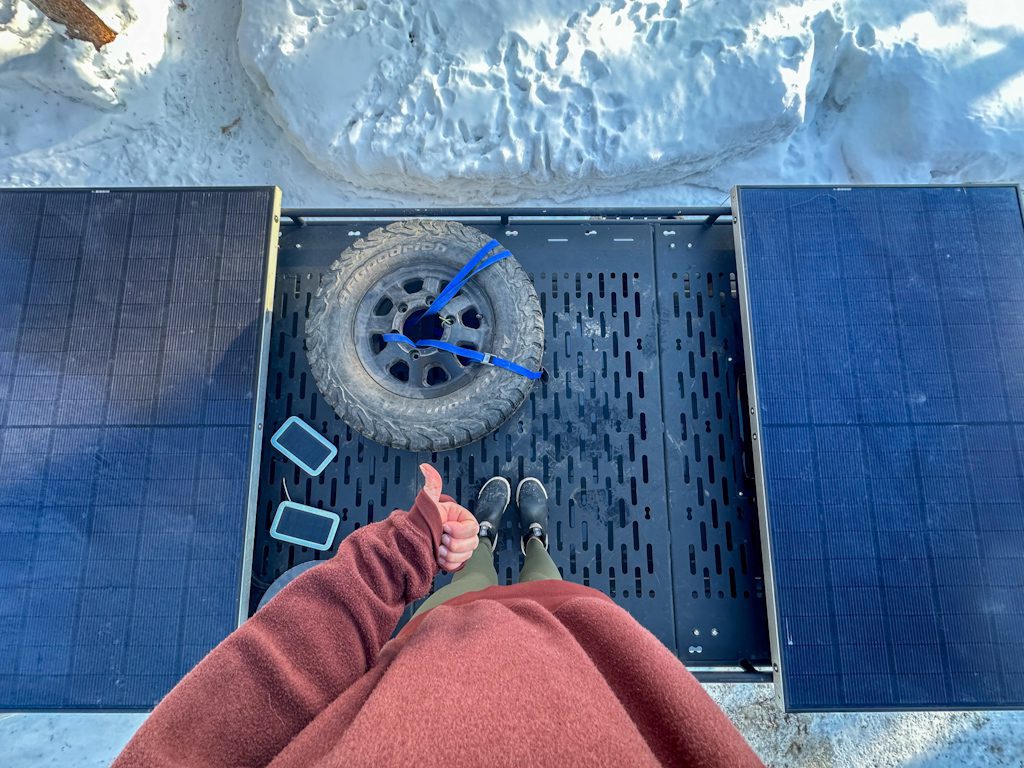
Thanks for being here! Happy building!
Eric + Colby
✉️ Join our mailing list for more content!
🙏🏽 If you are looking for more 1:1 van build help, we are here to help via Consulting or Travel Van Building.
[Start Here] Beginner Guides:
